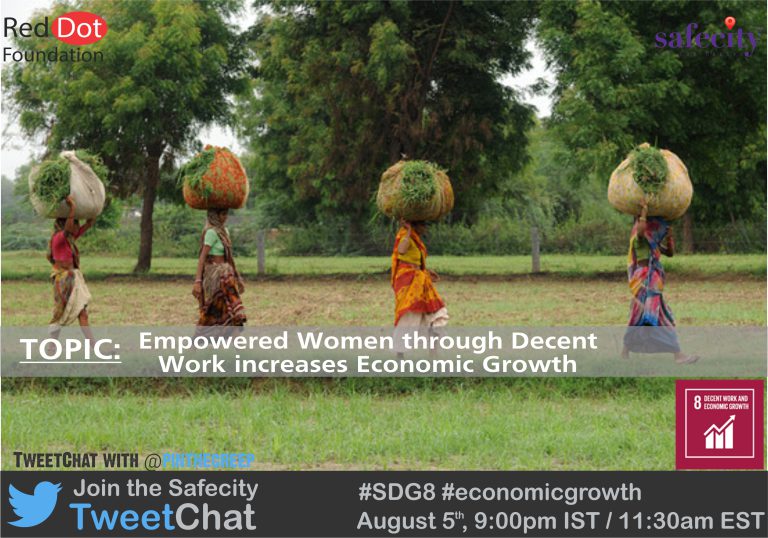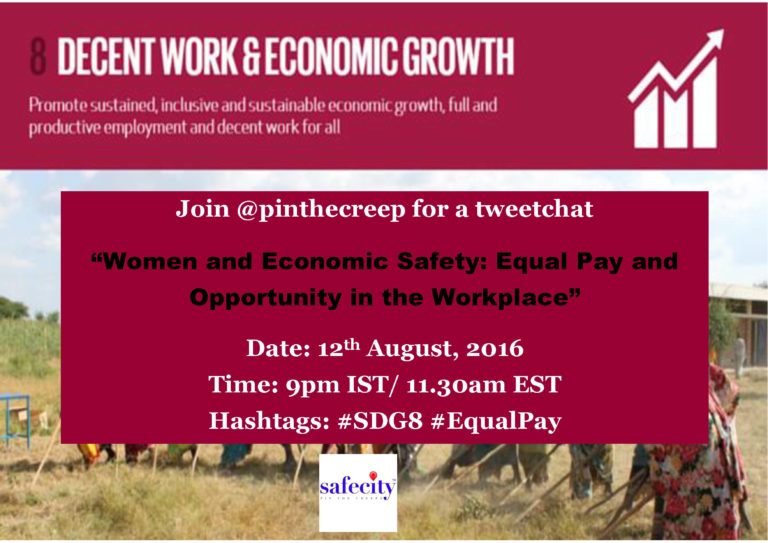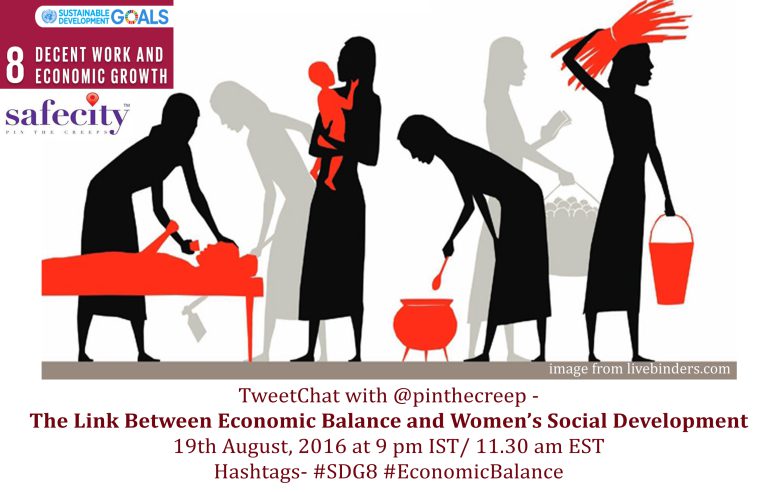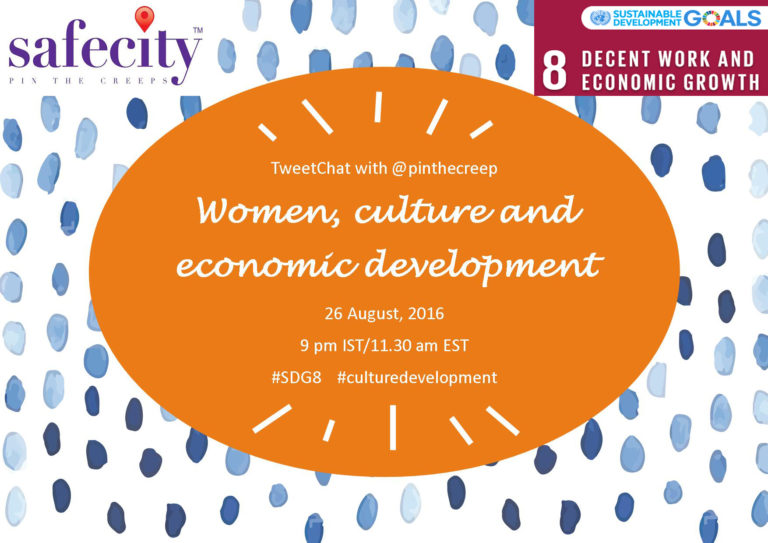SDG 8- Decent work and economic growth for all- An overview.
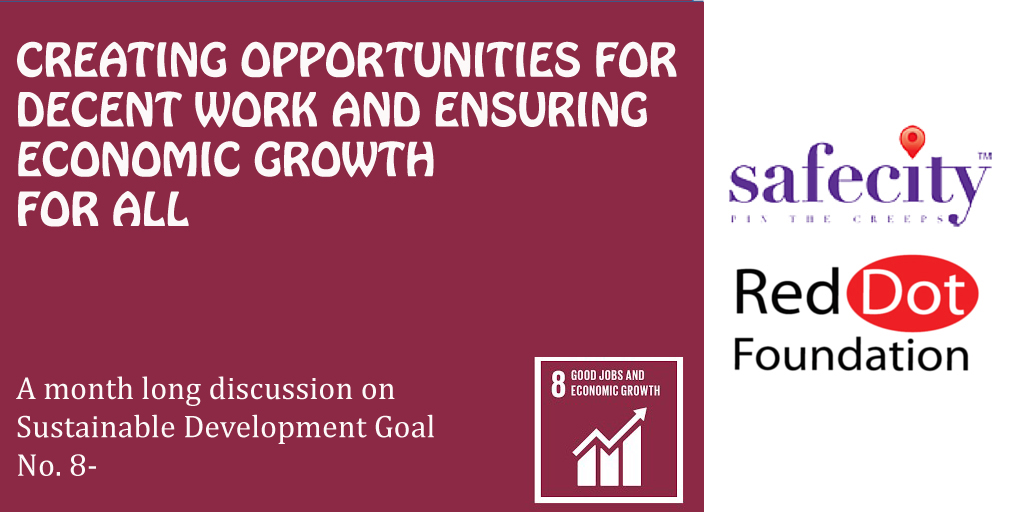
Nagsen Torne is a graduate in Bioanalytical Sciences from Ramnarain Ruia College and is currently pursuing a Masters degree in Public Policy Analysis. He is a kickboxer and also a bibliophile who loves learning. He believes that a pen, a few words and an idea can bring about the greatest of social revolutions.
SDG 8- Decent work and economic growth for all.- An overview.
SDG 8 – In a nutshell, sustainable economic growth in the SDG means providing opportunities not only for work, but for work that allows a decent life. Decent work, says the UN, should not mean merely survival; rather, it should create the opportunity to escape the grip of poverty. At the outset, SDG 8 presents a huge mountain to climb. Gender inequality in almost all fields, adds the crucial question of women in this “inclusive” growth.
The goal emphasizes inclusion of everyone in its wording, and a significant part of that is ensuring women are folded into reforms and programs going forward. Women have long been shut out of the workforce, and though progress has undoubtedly been made, there’s much to be desired in terms of workplace equality. Income inequality, husbands denying their wives to work and workplace harassment are some of the issues that women face.
Week 1:
Karuna Dayal, @karunadayal curated our Twitter handle in the first week of August discussing the various aspects of SDG 8- Decent Work and Economic Growth with regards to women. Naina Jha, @27nainajha, hosted our first TweetChat for the month discussing how women can be empowered and can achieve economic growth when they have access to decent work.
Key points that were discussed are as follows:
- The definition of decent work in context of women.
- Any form of work that allows women to support themselves without any inherent danger and provides living wage, workplace safety and protection against discrimination.
- A form of work where women are considered to be equal with men and are treated in a respectable fashion with equal opportunities.
- How important is decent work for women and the way it gives impoverished women a level playing field with their male colleagues.
- The McKinsey report which shows that women perform 9.8 times the amount of unpaid work than men in India.
- The way in which opportunities for decent work lead to women’s empowerment.
- The fact that if number of female workers were to increase to the same level as the number of men, GDP would expand by 27 percent in India.
- The importance of childcare facilities to get women into the work force. “Double dividend” – working women’s children are better fed, better educated, thus building social capital for the economy.
- How by achieving higher level of eco productivity through diversification & innovative ideas of entrepreneurship women themselves can help provide sustained economic and inclusive growth.
- How everyone can take a stand & ensure a facilitative environment for SDG 8.
Week 2:
Our curator for the second week, Abdul Mufeez Shaheed @abdulmshaheed, held a thought-provoking TweetChat on the importance of ensuring equal pay and opportunity in the workplace for women and their economic safety in an attempt to achieve SDG 8. Leadership roles, equal pay, societal pressures, control over resources were some of the issues under discussion concluding with strategies on how each one of us can overcome the Gender Pay Gap in our own workplace.
Key points that were discussed are as follows:
- How equal pay is about justice, equality and dignity.
- The way in which lack of support, lack of safety and cultural exclusion stop women from taking up leadership roles in companies, politics, etc.
- How the society’s stereotypical portrayal of women’s responsibilities is responsible for the exclusion.
- The way in which the patriarchal setup leads to loss of confidence in ambitious women.
- How race, religion and inter-generational gap plays a role in gender hierarchy.
- An important point of preferring fair colored female worker to a dark colored woman was also raised.
- The discrimination due to religious dresses like hijab, use of vernacular language.
- The importance of land rights for women.
- Gender pay gap and how to address it in India.
Week 3:
Our social media intern, Shailendra Mishra @sha_engineer, held a TweetChat on the importance of identifying the link between ensuring an economic balance in order to bring about women’s social development. The discussion headed into problem solving by discussing changes that could be made in the economic sector to ensure that women can avail of development schemes which ended in ideating about ways in which economic growth can aid women’s security and safety.
Key points that were discussed are as follows:
- How the society still sees men as bread winners and its influence on gender pay gap.
- The impediment that early or forced marriage leads to in a women’s educational and economic pursuit.
- The parochial view of the Indian society to look down upon domestic work and the menial wages it offers for domestic work.
- The importance and implementation of government schemes like basic sanitation for economic growth.
- The importance of rural “bachat-gats” for deprived women.
- The changes that can be made in the economic sector so that women can get more opportunities in development schemes.
- The importance for making excess of finance easier to women enterprises.
- The ways in which economic growth can affect women’s safety.
- Economic growth leading to a sense of security and eventually to gender equality.
Week 4:
In the last week, our curator Kasha Frese @Kasha_Frese, held a TweetChat about SDG 8 from a unique perspective – about the many ways through which culture and the arts play a huge role in the development of women, not just socially or culturally but more importantly, economically.
- The importance of Internet in creating a connected community of gender-equality advocates.
- The use of smart phone and its implications to women safety and the impact of mass media.T
- The importance of local politics and culture to encourage women’s economic leadership.
- The importance of participation of women in decision making and also the interaction with decision makers.
- Quota system for women at the local level governance to make their voices heard.
- Sports and arts changing gender attitudes.
- How art can address gender stereotypes, call out hypocritical behaviour whilst providing a safe space.
- To address women’s financial safety along with economic development.
- The importance of financial literacy for women especially rural women.
- Confidence that a woman gets on being financially stable.
- The social patriarchal evil of blaming a woman for being the victim.
- The importance of keeping the younger generation away from orthodox thinking.


